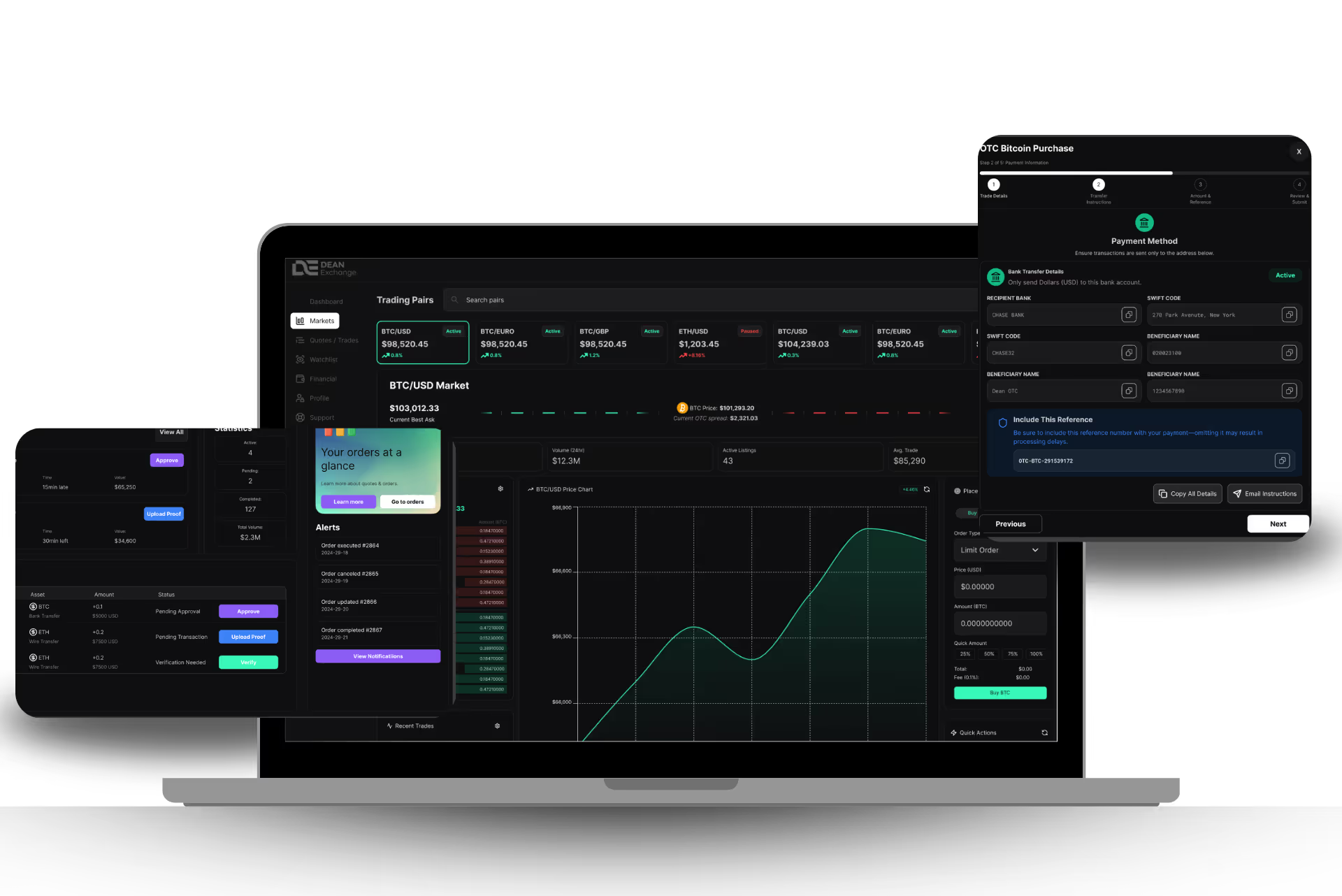By the
This is some text inside of a div block.
This is some text inside of a div block.
•
5
min read

Cryptocurrency is changing the way people think about money, technology, and the internet. But if you're new to the world of digital assets, it's natural to have questions. What exactly is cryptocurrency? How does cryptocurrency work? And how do you safely get started?
In this beginner-friendly guide, we’ll walk you through the basics—cryptocurrency explained in simple terms. You’ll learn about blockchain, wallets, exchanges, common risks, real-world use cases, and tips for taking your first step. Whether you're here out of curiosity or looking to invest, this is the ultimate starting point.
At Dean Exchange, we help everyday users become confident crypto learners through cryptocurrency tutorials, expert guidance, and live blockchain sessions tailored for beginners. Let’s dive in.
At its core, cryptocurrency is a digital currency that uses cryptography for security. Unlike traditional money (also called fiat currency), cryptocurrencies are decentralized, meaning they’re not controlled by a central authority like a government or bank.
Instead, they run on blockchain technology, which acts as a secure, transparent ledger that records every transaction made using the cryptocurrency.
You’ve probably heard of:
Each coin or token serves a different purpose—some as digital cash, others for accessing services on decentralized platforms.
To understand how cryptocurrency works, you need to understand the blockchain. A blockchain is a chain of blocks, each containing a group of verified transactions. These blocks are linked and secured using cryptography.
Because the blockchain is decentralized, it's stored across a network of computers (called nodes), which ensures transparency and resistance to fraud. Once a transaction is recorded on the blockchain, it can’t be altered or deleted.
Cryptocurrency allows you to send and receive money directly to anyone, anywhere in the world, without needing a bank or payment processor. It’s fast, secure, and available 24/7.
A crypto wallet is a tool that lets you store, send, and receive cryptocurrencies. It doesn’t actually hold the coins; instead, it stores your private keys—secret codes that let you access your funds on the blockchain.
Tip: For beginners, a reputable hot wallet is easiest to start with. As your holdings grow, consider a cold wallet for better security.
A cryptocurrency exchange is a platform where users can trade cryptocurrencies. You can convert fiat currency (like USD or EUR) into crypto, or swap one crypto for another.
Dean Exchange Tip: If you're just starting out, centralized exchanges offer more beginner-friendly features, including customer support and fiat deposit options.
Cryptocurrencies aren’t just for speculation. Here are a few growing use cases:
Send money globally in minutes, often with lower fees than traditional banking systems.
Access loans, earn interest, and trade assets—all without banks—on blockchain-based financial platforms.
Artists and creators use blockchain to sell unique digital assets (Non-Fungible Tokens) directly to buyers.
Interact with decentralized apps (dApps) that offer everything from gaming to social media—powered by crypto.
Cryptocurrency is becoming a popular way for people to send money across borders faster and cheaper.
While the crypto space is full of opportunity, it’s also important to understand the potential downsides:
Crypto prices can swing dramatically in a short time. Only invest what you can afford to lose.
Be cautious of fake websites, fake tokens, and too-good-to-be-true investment offers.
If you lose your wallet’s private keys or recovery phrase, you could lose your funds permanently.
Laws around cryptocurrency vary by country and are still evolving, which could affect future use or taxation.
Dean Exchange Insight: Our cryptocurrency tutorials include security tips and best practices to help you avoid beginner mistakes.
1. Learn the Basics
Start with educational content like this blog, watch explainer videos, or join a live blockchain session at Dean Exchange.
2. Choose a Reputable Exchange
Sign up with a beginner-friendly platform like Coinbase or Binance. Verify your identity if required.
3. Set Up a Wallet
Use the exchange’s wallet or download a standalone app like Trust Wallet or MetaMask.
4. Fund Your Account
Deposit funds via bank transfer or card to buy your first crypto.
5. Make Your First Purchase
Choose a coin like Bitcoin or Ethereum and buy a small amount to get started.
6. Store Safely and Track
Keep your assets secure and monitor your portfolio with a tracking app or exchange dashboard.
7. Continue Learning
The more you know, the better decisions you’ll make. Follow crypto market trends, join communities, and explore cryptocurrency tutorials from Dean Exchange.
At Dean Exchange, we believe blockchain should be accessible to everyone. That’s why we offer a range of tools and resources designed specifically for crypto for beginners:
Whether you want to invest, build, or simply understand how it all works, Dean Exchange is your trusted gateway to the world of crypto.
Cryptocurrency is transforming the way we exchange value, access financial tools, and interact online. As with any innovation, it takes time to learn—but it starts with the basics.
Now that you’ve seen cryptocurrency explained in beginner-friendly terms, you’re well on your way to exploring this exciting space. From how cryptocurrency works to understanding blockchain technology, exchanges, wallets, and beyond, you’ve laid the foundation.
Ready to take the next step?
Join Dean Exchange today for expert-led tutorials, interactive sessions, and the educational tools you need to become confident in crypto—no tech background required.


Join our newsletter for exclusive insights, breaking crypto trends, and learning opportunities—delivered straight to your inbox.